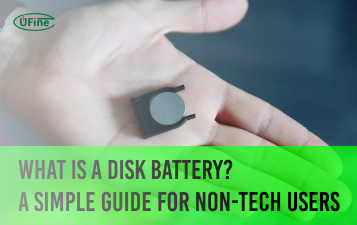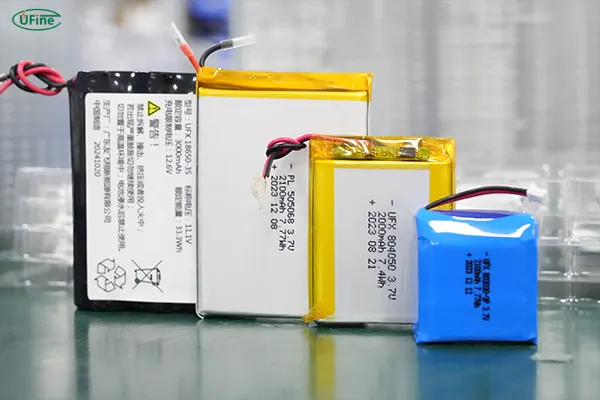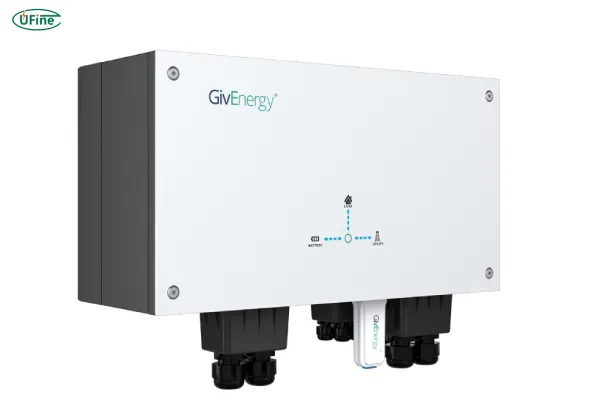In today’s world, we rely on various types of batteries to power everything from everyday gadgets to massive industrial machines. But have you ever wondered about the difference between DC batteries and AC batteries? Or why DC circuits use batteries in the first place? If these questions have crossed your mind, you’re in the right place. In this guide, we will dive deep into the details of both DC and AC batteries, explore their uses, and help you understand which type is best suited for your needs.
Part 1. What is a DC battery?
A DC battery (Direct Current battery) is a type of battery that stores energy in a way that allows it to deliver a consistent flow of electricity in one direction. Unlike AC (Alternating Current), where the electric current constantly changes direction, DC maintains a steady current. This is ideal for applications requiring a stable and constant power source.
Example: A DC battery powers devices like flashlights, laptops, and smartphones.
Part 2. Types of DC batteries
There are several types of DC batteries, each designed for specific needs. Here are the most common ones:
- Lead-Acid Batteries: These are traditional batteries used in many applications, from automobiles to solar energy systems. They are cost-effective but heavier and have a shorter lifespan compared to newer technologies.
- Lithium-Ion Batteries: A more advanced option used in electric vehicles, laptops, and renewable energy systems. They offer a longer lifespan, faster charging times, and are lighter than lead-acid batteries.
- Nickel-Metal Hydride (NiMH): Often used in hybrid cars and energy storage systems, NiMH batteries are environmentally friendly but tend to be less efficient than lithium-ion batteries.
- Alkaline Batteries: Common in everyday devices like remote controls and small gadgets. They offer a simple, reliable, and affordable solution for low-energy needs.
Lithium VS. Alkaline Batteries: A Comprehensive Comparison
Part 3. Working principle of DC batteries
The basic working principle of a DC battery is quite simple: it stores chemical energy in its cells and then converts it into electrical energy when connected to a load (like a device or machine). The current flows in one direction, from the negative to the positive terminal, creating a direct current.
In more technical terms:
- The chemical reaction within the battery generates electrons.
- These electrons flow through the external circuit, powering whatever device is connected.
- The battery continues to produce this steady flow of electrons until its stored energy is depleted.
Part 4. DC Battery applications
DC batteries are incredibly versatile and used in numerous applications, including:
- Electric Vehicles (EVs): Lithium-ion DC batteries are crucial for powering EVs.
- Portable Devices: Items like smartphones, laptops, and digital cameras use DC batteries for portability and reliability.
- Renewable Energy Systems: Solar panels and wind turbines store energy in DC batteries for later use.
- Backup Power: DC batteries are commonly used in UPS systems (Uninterruptible Power Supplies) for data centers, homes, and businesses.
- Toys & Gadgets: Many small electronic devices use AA or AAA alkaline DC batteries for convenience and power.
Part 5. What is an AC battery?
An AC battery is designed to store energy that is intended for use with Alternating Current (AC) systems. AC is the type of electricity most commonly used in homes and businesses, where the current alternates between positive and negative directions.
While AC batteries are less common than DC, they are critical for certain applications where AC power storage is required.
Example: AC batteries are used in grid energy storage systems, helping to balance the supply of electricity from sources like wind and solar.
Part 6. Types of AC batteries
Just like DC batteries, there are different types of AC batteries available, including:
- Lithium-Ion AC Batteries: Often used in smart grids and home energy storage systems, these batteries provide efficient, long-lasting power.
- Lead-Acid AC Batteries: Used in backup power applications, particularly for off-grid solar systems. Though they are cheaper than lithium-ion, they are bulkier and less efficient.
- Flow Batteries: A more advanced option that uses liquid electrolytes to store energy. They are suitable for large-scale energy storage applications, such as in solar farms and power plants.
Part 7. Working principle of AC batteries
The working principle of an AC battery is somewhat different from DC. AC batteries store energy in DC form but use a converter to change it into AC power when needed. These batteries function as part of an energy storage system that stores excess power and then delivers it to the grid or directly to an AC-powered device.
For example:
- In renewable energy systems, excess power generated by solar panels is stored in AC batteries and then used to supply energy to the home or business during periods of low generation.
- Grid storage involves charging an AC battery with surplus power and discharging it when demand spikes, ensuring a steady and reliable supply of electricity.
Part 8. Applications of AC batteries
AC batteries are typically used in large-scale applications where energy storage is crucial. Common uses include:
- Grid Storage: AC batteries store electricity generated from renewable sources like solar or wind power, providing backup during peak demand.
- Home Energy Storage: Systems like Tesla Powerwall use AC batteries to store solar energy, making it available when needed.
- Industrial Power Storage: AC batteries are used to support industrial facilities with backup power solutions and load leveling.
Part 9. DC battery vs. AC battery: what are the differences?
While both DC and AC batteries serve to store and provide power, there are key differences between them:
| Feature | DC Battery | AC Battery |
|---|---|---|
| Current Type | Direct Current (DC) | Alternating Current (AC) |
| Common Applications | Portable devices, electric vehicles, renewable energy systems | Grid storage, home energy storage, industrial applications |
| Energy Conversion | No conversion needed (DC power directly) | Needs a converter to change DC to AC |
| Efficiency | High efficiency for low-energy applications | Best for large-scale energy storage |
| Size and Weight | Smaller and lighter for portable use | Generally larger for grid-scale systems |
In short: DC batteries are used for smaller, personal devices, while AC batteries are more suited for large-scale storage and grid management.
Part 10. Which battery is better for me?
Choosing between a DC and an AC battery depends largely on your needs:
- DC Batteries are ideal if you need portable energy storage or power for small electronics, electric vehicles, or renewable energy applications.
- AC Batteries are better suited for larger-scale needs like grid storage, industrial applications, or solar energy storage systems.
If you’re looking for a home energy solution, consider whether your needs are more suited for AC battery-based storage (e.g., storing solar energy) or a more DC battery system for portable power sources.
Part 11. Why do DC circuits use batteries?
DC circuits use batteries because they require a constant, unidirectional flow of electrical current. Since DC batteries provide a steady current in one direction, they are perfect for these systems. Here’s why:
- Consistency: Devices like flashlights, smartphones, and solar systems need a constant power source to function efficiently. DC batteries meet this demand by providing a stable flow of energy.
- Portability: Unlike AC systems, which require complex conversion processes, DC circuits can easily be powered by small, portable DC batteries. This is why DC batteries are favored in off-grid systems and mobile electronics.
Part 12. FAQs
-
Can I use an AC battery for a DC circuit?
It’s possible, but you’ll need an AC-to-DC converter to convert the power. In most cases, it’s better to use a DC battery for DC circuits for efficiency and simplicity. -
Are AC batteries more efficient than DC batteries?
AC batteries are more efficient in large-scale applications, such as grid storage. However, DC batteries are generally more efficient in smaller, portable devices. -
Can DC batteries be recharged?
Yes, most DC batteries, including lithium-ion and lead-acid, can be recharged multiple times depending on their type.
Related Tags:
More Articles

What Is a Disk Battery? A Simple Guide for Non-Tech Users
A disk battery is a small, round cell used in watches, remotes, and other electronic devices. It delivers steady power for compact, low-drain devices.
What Battery Powers a Space Heater?
Discover the type of battery that powers space heaters and learn how to choose the right one for efficient heating in your home or office.
What Is an LR14 Battery? Learn About This C-Size Cell
The LR14 battery, also known as a C battery, delivers steady power. Learn its specs, uses, lifespan, and how it compares to other battery types.
Watch Battery Dimensions Chart: Sizes, Voltages, and Equivalents Explained
Understanding watch battery dimensions helps you choose the right size, voltage, and equivalent model to keep your watch running safely and smoothly.
How Long Can You Rely on Battery-Powered Generators?
Discover battery generator runtime & lifespan factors. Learn how to maximize performance and choose the right power solution.





